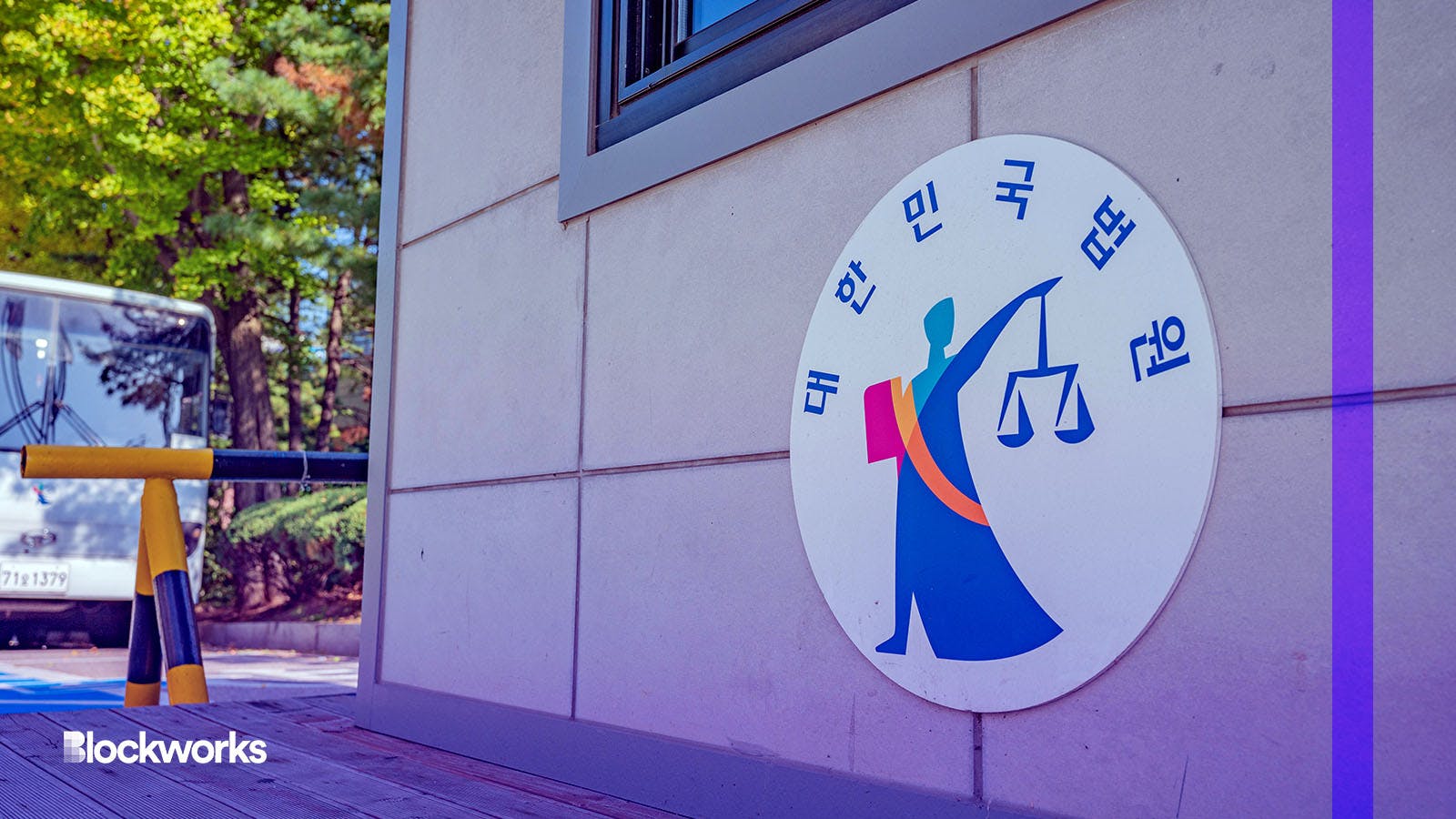Terraform Labs Co-Founder Among 10 Indicted in South Korea
Seoul prosecutors reportedly froze more than $184 million in assets from the indicted individuals, including Daniel Shin

Source: Shutterstock / Jisoo Song, modified by Blockworks
Terraform Labs co-founder Daniel Shin was among 10 individuals indicted by South Korean prosecutors on charges including alleged violations of capital markets law, marking a significant escalation in the long-running case.
Eight people, including Shin, were indicted on charges of illegal trading, while two others were charged with breach of trust, Bloomberg reported on Tuesday.
They each had direct links to the Terra stablecoin, which suffered a meteoric crash last year after its price significantly drifted from its peg to the US dollar. A South Korean court did not accept the prosecution’s claim that its sister token Luna is a security.
The Seoul Southern District Prosecutors’ Office reportedly said on Tuesday that they froze assets worth 246.8 billion won ($184.7 million) belonging to the accused individuals. Blockworks has reached out to Terraform Labs for comment.
South Korean authorities denounced the Terra project as a fraudulent scheme from its start, declaring that the algorithm underpinning the stable coin’s value was inherently flawed. They also accused Shin and his associates of causing irreparable harm to investors around the world.
Furthermore, prosecutors allege that the individuals involved in the project pocketed a whopping 464 billion won ($347.2 million) in profits before the implosion. Illicit gains are currently being tracked.
The individuals charged with wrongdoing were also accused of illegally disclosing their clients’ payment information and engaging in corporate fund embezzlement.
Those who suffered financially in the Terra/Luna crisis will be relieved by the indictment, according to Jeff Mei, COO at digital asset exchange BTSE.
“In general, we see the crypto-related collapses of this past year as a flushing out of bad actors, though of course many reputable projects also got caught in the storm,” he added.
Prosecutors earlier took measures to freeze assets owned by Terraform executives, including the foreclosure of a Seoul-based apartment Shin owned. Prosecutors recently interrogated Shin, who is believed to have cut ties with former Terraform Labs CEO Do Kwon in 2020.
After the TerraUSD crash, Kwon was the first to be blamed. Authorities officially began to hunt for him in July onwards last year. Despite their efforts, Kwon maintained he was not on the run.
But Kwon and his associate Han Chang Joon were recently arrested in Montenegro for allegedly entering the country illegally and carrying fake documentation.
The US and South Korea have formally requested Montenegro officials to extradite the disgraced crypto boss. But the extradition process could take a while as the accused individuals await trial on separate charges related to false documents. The Two South Korean natives could face sentences ranging between three months to five years.
Get the news in your inbox. Explore Blockworks newsletters:
- The Breakdown: Decoding crypto and the markets. Daily.
- 0xResearch: Alpha in your inbox. Think like an analyst.






